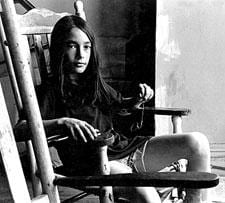An unscientific poll of friends revealed that none could name a Canadian film with queer content before 1977’s groundbreaker, Outrageous!
The poll results were hardly surprising. Canada’s film industry was fledgling in the ’70s and homosexuality still a taboo subject. And even if there had been an earlier gem, it would likely have sunk into not-available-on-DVD invisibility ages ago.
Obscure until very recently, Frank Vitale’s Montreal Main offers an enticing view of queer Canadiana circa 1974.
The film’s second wind is a result of diverse festival programmers excavating the work of Canadian pioneers. And the vibrant and clear remastered print playing at this year’s queer film festival arrives thanks to Concordia film professor Dave Douglas, who received a grant for a recovery of lost classics project.
Thomas Waugh, another professor at Concordia — and a preeminent historian of queer film who will be discussing Montreal Main following its screening — applauds Vitale’s work for its uniqueness, explaining that, “this story of utopian innocence and sexual freedom testifies with haunting eloquence to the early ’70s convergence of bohemian iconoclasm, political critique, and baby boomer energy in metropolitan North America.”
Largely improvised and featuring a cast of unpaid non-professionals, Vitale’s first feature — what he calls his “underground, quasi-successful film”— ran for one month in Canada (three weeks in Montreal and an additional week in Vancouver), then garnered praise when it was shown in high profile art museums in New York.
Made with cash borrowed from a relative and some government seed funds and shot over four weeks, the slice-of-life drama is an eye-opening portrait of bygone style and vocabulary, not to mention social issues.
Recalling his handiwork from New York some 35 years after its brief public showing, director Frank Vitale says, “I still cringe.” He’s not referring to the technical quality of the film, but rather to the rawness of its revelations.
“At the time,” he explains, “I was thinking, ‘I want to make a film and this is an interesting idea.’”
Later, it was clear there was another process at work. “I was working out my own sexuality in public,” Vitale reveals. Considering that he cast himself in the lead role, that makes sense.
Montreal Main is set in a bohemian Anglophone enclave at the middle point of the Sexual Revolution, before the Age of Disco but after the Age of Aquarius. Broadly, the film examines sexual politics. Living in a time of flux and striving to find satisfaction as old rules are being rewritten, the characters are quarrelsome and their relationships are mine fields.
In the midst of the battling sexes, handsome bearded Frankie is on a quieter quest to find his own place. Vitale’s story depicts him as being immersed in an artsy group of liberal, mostly heterosexual friends. The coming-out-and-discovering-the-gay-community storyline a viewer might expect is not made available to Frankie. Instead he’s an endearing, if fumbling, explorer.
After his attempt at sexual experimentation with his straight friend comically misfires, Frankie befriends a pubescent boy, Johnny, and that complex and ambiguous friendship is soon after outlawed by Johnny’s father, who is wary of the possibly erotic undercurrent of their connection.
As Montreal Main concludes, Frankie is still adrift. If he’s still not exactly certain where he belongs, his experiences have managed to give him keen moments of enlightenment.
Waugh’s assessment of the film also highlights how its vision anticipates recent queer politics.
“What’s ironic is that this film came out of left field as it were, from hip straight-ish film buff McGill students living in all those cheap lofts on the lower Main, prodding the vulnerable legacies of masculinity, class, consciousness and culture,” Vitale notes. “The gay characters have only supporting roles — though they leave wonderful, indelible traces of queenery.
“The gay movement of the day knew nothing about this film, was a bit ashamed of the boy thing and annoyed at its uncertain ‘positive image’ quotient,” he adds.
“Now Montreal Main stands as one of the most vivid documents of queer emergence in early ‘70sCanadian cinema.”

 Why you can trust Xtra
Why you can trust Xtra


